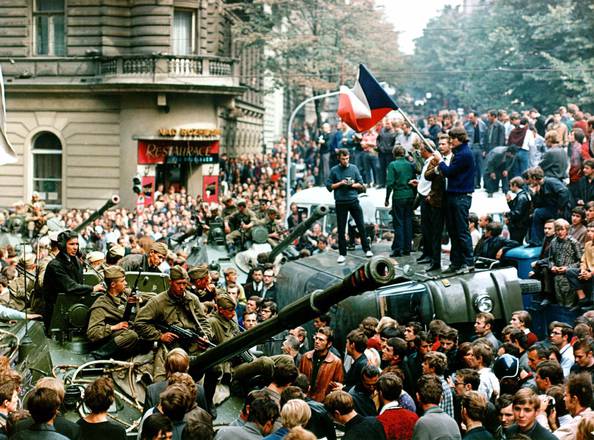Prague Spring, 50 years ago, Soviet invasion
Over 6,000 armored vehicles and half a million soldiers crossed
22 August, 14:01The Soviets, who had been wlecomed as liberators from the Nazis in 1945, became invaders. On June 27, the ''The2000 Words manifesto'' written by the writer Ludvik Vasulik had been welcomed with enthusiasm by thousands of celebrities in the fields of culture, art and sport, with a strong demand for acceleration of the democratization process. In July, the Soviet press and that of the DDR had warned Prague about the risks of ''imperialism'', ''deviationism'' and ''counter-revolution''; on August 19, on the eve of the invasion, Brenev himself had written a letter to Dubek, in order to express his disappointment with what was happening in Czechoslovakia Hundreds were killed on both sides, but mainly on the side of the Czechoslovaks. The Western countries could only wait on the side-lines, express their sympathy and solidarity with an attacked people, but nothing else. The communist parties were forced to begin an examination of conscience, which was not always careful and faithful. The Soviet propaganda insisted that the country had been liberated from the counter-revolutionaries, the Prague radio continued to spread desperate messages addressed to the free Europe, exhorting not to believe in that manifestly untrue version of the facts. On 24 August, Dubek and other members of the Czechoslovak government were taken to Moscow and obliged to accept the presence of Warsaw Pact troops and renounce the reform program. The dream of spring in Prague evaporated and ''normalization'' began. On January 16, 1969, the university student Jan Palach, without saying a single word, poured petrol over himself and set fire to himself in Wenceslas Square. Hundreds of thousands of people attended his funeral, challenging the regime's power. On April 17, Dubek was ousted and his place taken by Gustav Husak. The current president of the Czech Republic, Milo Zeman, at that time was a young university professor who had refused to sign a document which claimed that the events of 21 August 1968 were a ''liberation'' and not an invasion. Thousands and thousands of Czechoslovaks did the same thing, and not only the intellectuals. The famous Olympic champion Emil Zatopek, ''the human locomotive'', was sent to work in a uranium mine and after six years sent back to Prague to be a street sweeper. Zeman was expelled from professorship in 1970. Through his spokesperson he made known his intention not to give any commemorative or celebratory speech, since he had already said what he had to say fifty years earlier, 'when you needed to have a lot of courage and you had to pay a very high price: a thousand speeches given today are not worth the few respectable words we said at that time'. (ANSA).














